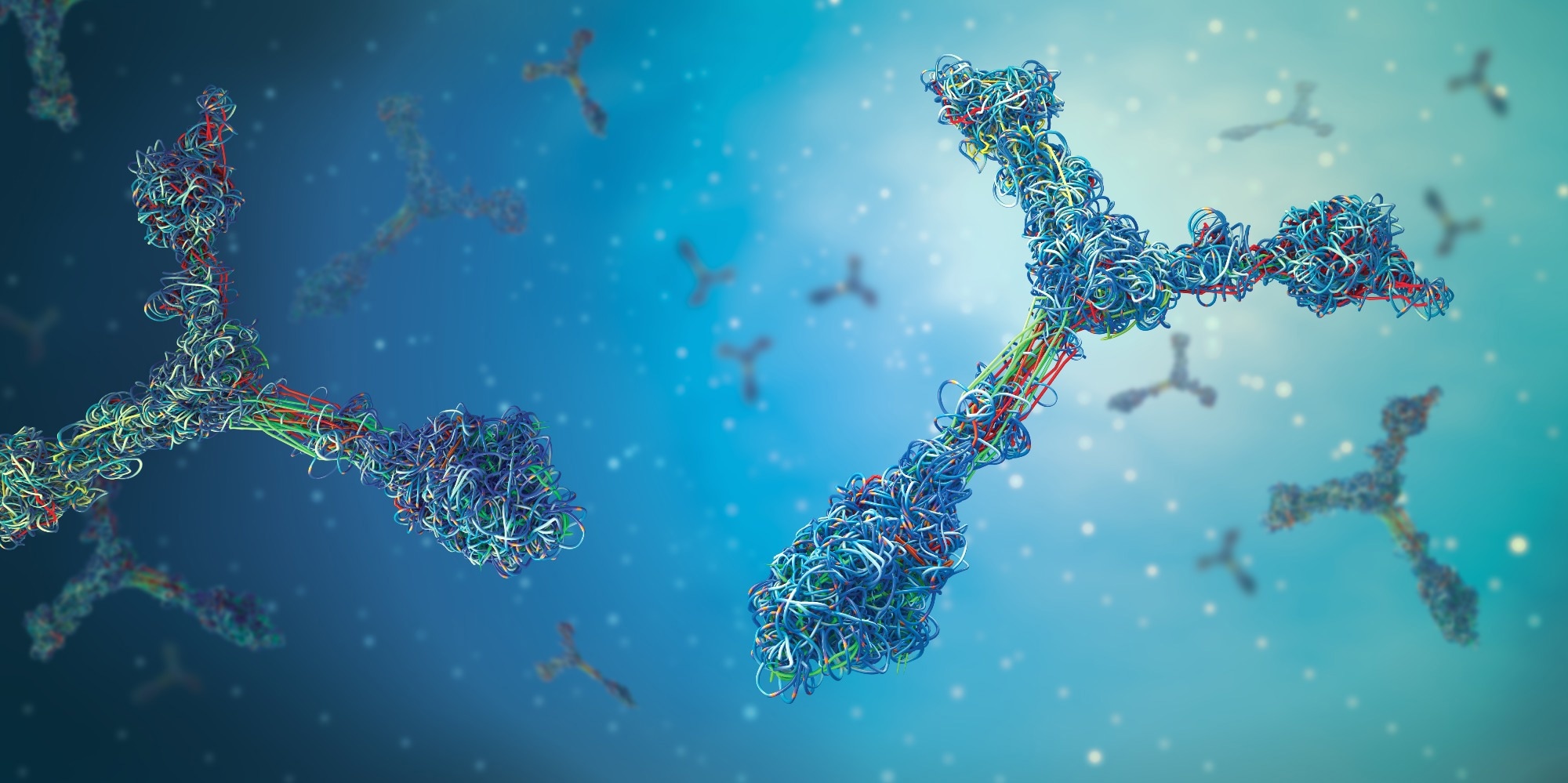In a recent study published in The Journal of Allergy and Clinical Immunology, researchers in New Zealand gathered evidence to show that selective immunoglobulin A deficiency (sIgAD) is an understated risk factor for severe coronavirus disease 2019 (COVID-19).
 Study: Selective IgA deficiency may be an under-recognized risk factor for severe COVID-19. Image Credit: Christoph Burgstedt / Shutterstock
Study: Selective IgA deficiency may be an under-recognized risk factor for severe COVID-19. Image Credit: Christoph Burgstedt / Shutterstock
Background
Selective IgA deficiency (sIgAD) is the most common type of primary immunodeficiency disorder (PID), where IgA levels remain under 0.07g/L. It is a mild disorder where the majority of patients are asymptomatic. Recent data indicates patients with sIgAD might be at high risk of severe COVID-19 primarily because severe acute respiratory syndrome coronavirus 2 (SARS-CoV-2) infects via upper respiratory tract (URT) mucosa where IgA plays a critical protective role.
Study findings
There are three overlapping clinical phases of SARS-CoV-2 infection. While SARS-CoV-2 enters the nasopharynx, that phase is asymptomatic. However, patients experience fever, myalgia, and increasing dyspnea when it enters the lungs. During this time, a chest-computerized tomography (CT)scan shows a ground-glass appearance due to elevated inflammatory markers, such as interleukin 6 (IL6) and tumor necrosis factor (TNF).
A few patients progress to the severe systemic phase, where their multiple organs are at risk of dysfunction, and hypoxia sometimes leads to death. The immune response at each SARS-CoV-2 infection phase plays a critical role in the COVID-19 outcome. Studies have shown that patients succumbing to infection often have a destructive immune response accompanied by antibody-dependent enhancement (ADE).
Early in the pandemic, studies had pointed to a steep age-related mortality gradient with high fatality rates in those over 80 years, likely because older people accumulate anti-IFN antibodies. Similarly, studies showed that patients with pre-existing medical conditions, such as obesity and hypertension, are at a higher risk of adverse COVID-19 outcomes. Yet, the immunological basis of these host susceptibilities remains unclear. Also, studies have not clarified why some people of some ethnicities are more susceptible to poor COVID-19 outcomes.
It is justified to refer to chronic COVID-19 as a stalemate between SARS-CoV-2 and a suboptimal immune response. It prolongs the duration of viral shedding and points to the uncertain nature of humoral immunity in the context of pathogenic infections. Only 30% of sIgAD patients have PID-like symptoms. However, IgAD is a relatively small part of other PIDs, such as common variable immunodeficiency disorders (CVID). Studies have elucidated the genetic mechanisms governing IgAD in CVID, in which deficiencies of specific immune components (not IgA) dominate the clinical presentation.
In the absence of IgA, IgG or IgM usually compensates for mucosal immunity. However, future studies should investigate whether SARS-CoV-2 specific IgG or IgM in a patient’s saliva following COVID-19 vaccination could be of prognostic value in sIgAD patients. In addition, prospective studies may also show if in vitro T-cell responses to SARS-CoV-2 could serve as a surrogate marker for protection against COVID-19 in sIgAD patients. Together, data from these studies could help in the development of personalized medicine for COVID-19 in sIgAD patients.
Conclusions
The potential vulnerability of sIgAD patients to COVID-19 illustrates the importance of mucosal immunity research in protecting against SARS-CoV-2. A remarkable example is that since children have robust mucosal immunity, they generally suffer from mild COVID-19. Likewise, secreted IgA in breast milk protects infants against COVID-19.
Nevertheless, the immunological mechanisms governing severe COVID-19 in sIgAD remain to be defined. Future studies should investigate whether systemic autoimmunity triggered by SARS-CoV-2 triggers severe COVID-19 in sIgAD patients or lower IgA levels in URT mucosa allow SARS-CoV-2 loads to increase such that there is a risk of severe illness.
Although less probable, researchers have also proposed that sIgAD-induced gut microbiome alterations or low gut SARS-CoV-2 neutralizing IgA contributes to a higher systemic viral load in sIgAD patients. New vaccines and therapeutics impeding SARS-CoV-2 nasal mucosal entry are in human phase III trials and might help to improve the prognosis of high-risk patients. In the future, nasal boost strategies might also prove effective. The NZACE2-Pātari project is currently pursuing ways to intercept and block SARS-CoV-2 in the nasal mucosa.
Researchers refer to PIDs as experiments of nature. SIgAD patients might enjoy good health until they contract SARS-CoV-2, like X-linked lymphoproliferative (XLP) patients until they contract Epstein-Barr virus. Also, most sIgAD patients are asymptomatic. However, monitoring their immunoglobulin levels routinely in patients admitted to hospitals with COVID-19 could help prioritize them for early treatment with monoclonal antibodies and antiviral drugs such as remdesivir. The key would be to enhance mucosal protection against SARS-CoV-2 with vaccines and therapeutics.
Journal reference:
- Selective IgA deficiency may be an under-recognized risk factor for severe COVID-19, Rohan Ameratunga, Euphemia Leung, See-TarnWoon, Edward Lea, Caroline Allan, Lydia Chan, Richard Steele, Klaus Lehnert, Hilary Longhurst, The Journal of Allergy and Clinical Immunology 2022, DOI: https://doi.org/10.1016/j.jaip.2022.10.002, https://www.sciencedirect.com/science/article/abs/pii/S2213219822010431